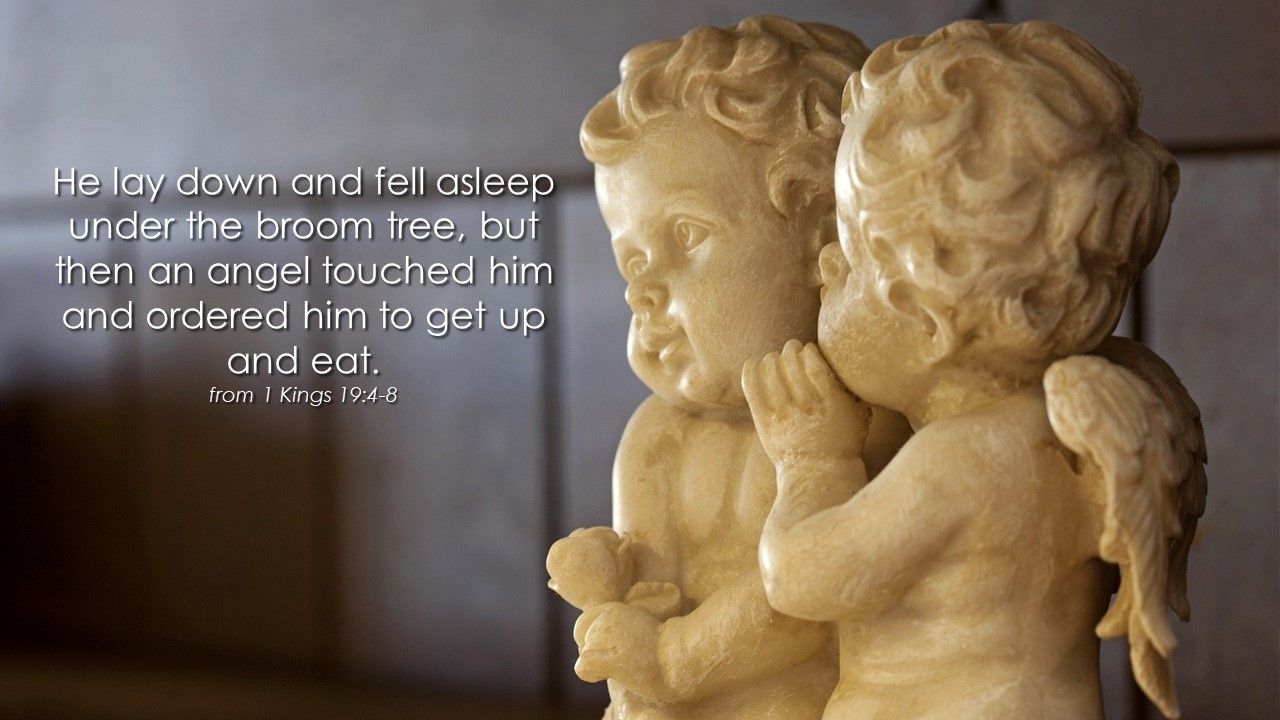Homily - 19th Sunday in Ordinary Time
Homily - 19th Sunday in Ordinary Time - August 11, 2024

Readings: 1 Kings 19:4-8; Ephesians 4:30-5:2; John 6:41-51
"Who does he think he is?" “Why did she say that to me?”
I know we usually make such comments, and sometimes less polite ones, when somebody throws us off balance. We wander around our little worlds with expectations, conscious and unconscious, for others to act out. It can be quite upsetting when they don't fit the roles, we've assigned them.
Reading today's Gospel, does it strike you as odd that Jesus' critics were upset because he said that he had come down from heaven but didn't seem at all bothered by his calling himself bread? Of course, in John's Gospel (4- 15), Jesus also called himself living water, the light of the world, the good shepherd, the resurrection and the life, the image of God, the true vine, and the way, the truth and the life Jesus had great expectations for his vocation.
In today's passage from Chapter six, we see a problem of clashing expectations. Jesus' compatriots and kin may have been thrilled with what he did, but when he declared that he had come from heaven, that was too much. They knew exactly where he had come from. Even if they admired Joseph and Mary, they didn't consider them heavenly emissaries who had brought a heavenly son to Earth.
The underlying conflict between Jesus and his audience was that he wanted to open their minds and hearts to more than what they already had and knew, but they felt safe and secure with life as it was: "Why fix it if it's not broken?"
They were a bit like Elijah in the incident described in our first reading. Elijah, the target of an assassination plot, had decided to flee and then to give up. "This is enough, Lord, let me die here and now, before they catch up with me!" But God had greater hopes for him and sent an angel to wake him up and give him food from heaven. Elijah appreciated that and still wanted to let it all come to an end, there and then. But the persistent angel woke him up again, telling him to eat more because he had a long road ahead of him.
And this time, he couldn't refuse and went to where God would reveal Self to him. (1 Kings 19:11-15). It is significant that the angel's job was to wake up Elijah and give him food. It is another way of saying that God's messenger prodded him toward a larger vision of things and promised he could find the strength to move beyond his hopelessness – walking 40 days to get there.
Last week’s liturgy invited us to feel our deepest hungers and task how Christ wants to satisfy them. This week’s liturgy warns that our expectations may the greatest obstacle keeping us from knowing what God keeps offering us. God has given us the sustenance we need to make our journeys through this life and to he next. May we recognize the strength we receive from the Lord, much as Elijah did centuries ago.
For six weeks, we are reading from Chapter 6 of St John gospel- the Bread of Life Discourse to stress the importance of the Eucharist as the source and summit of our faith. Talk about proper dispositions and the importance of silence before our liturgies.
Homilies











